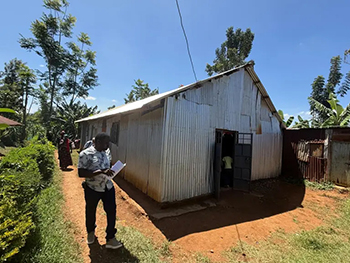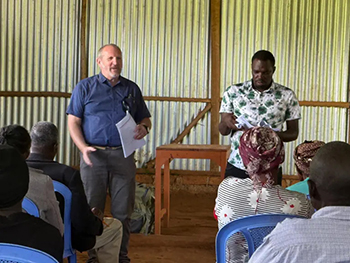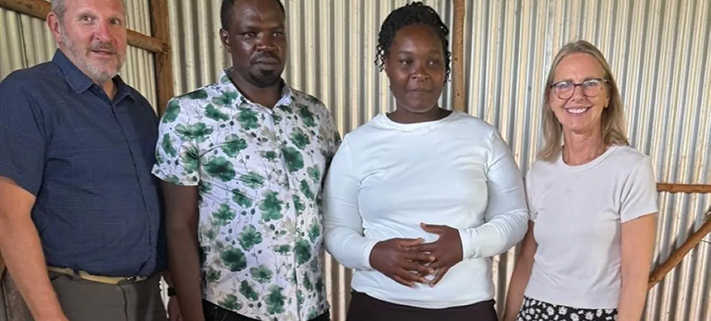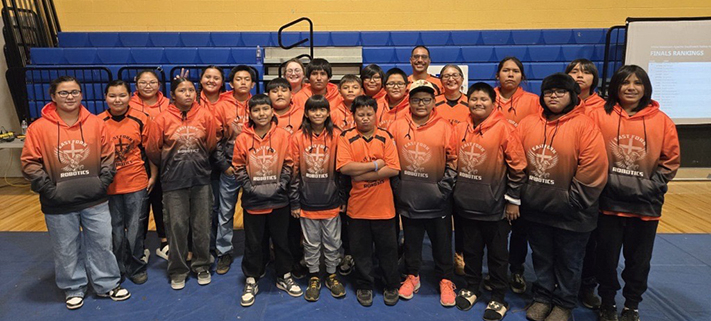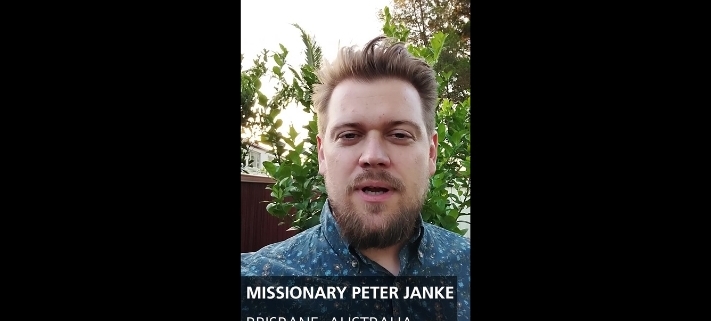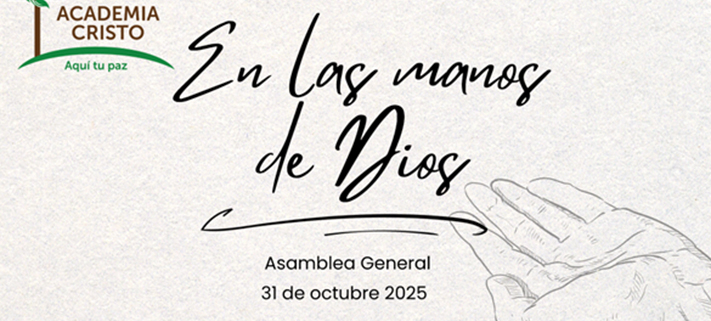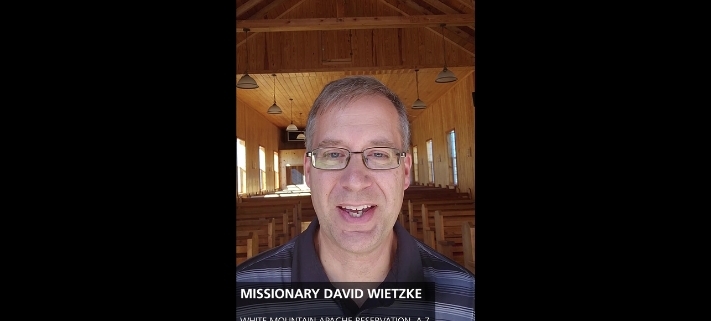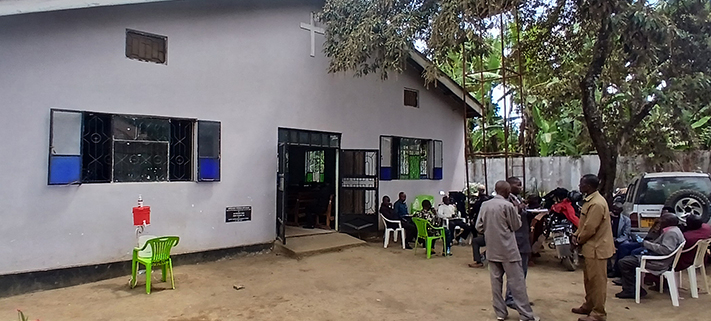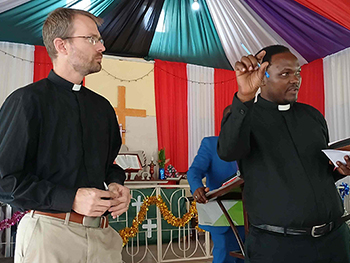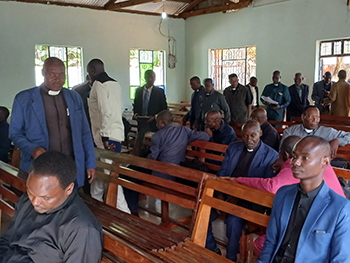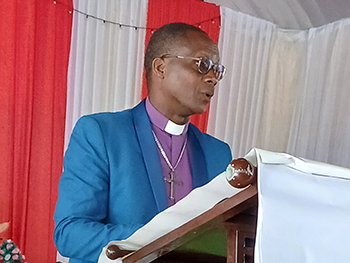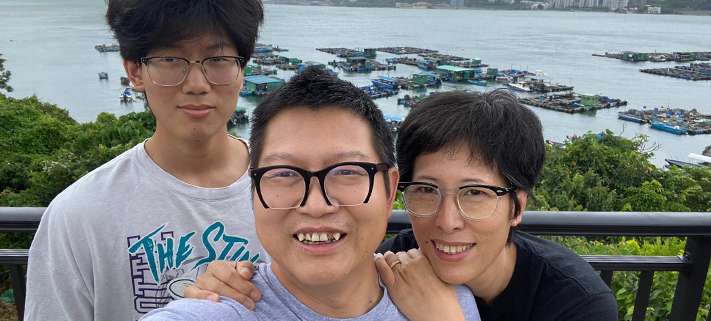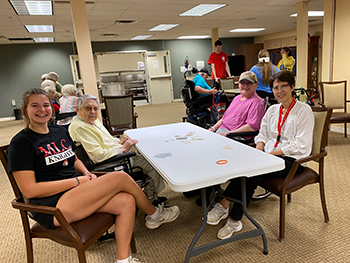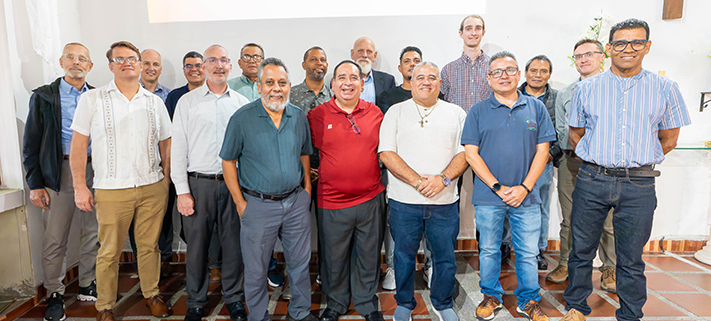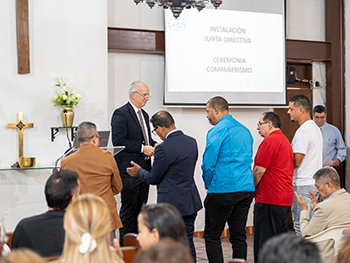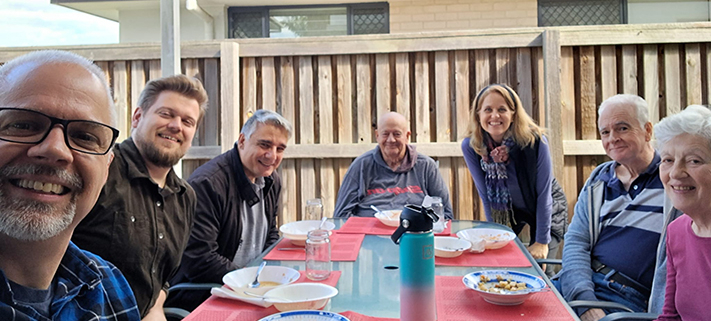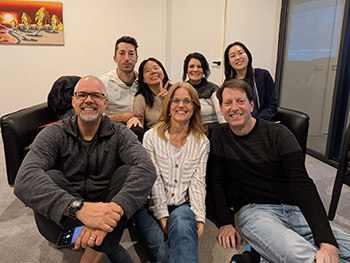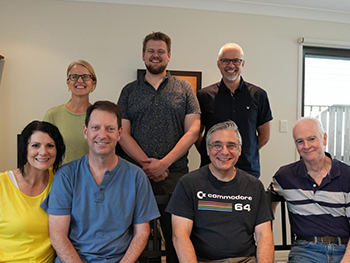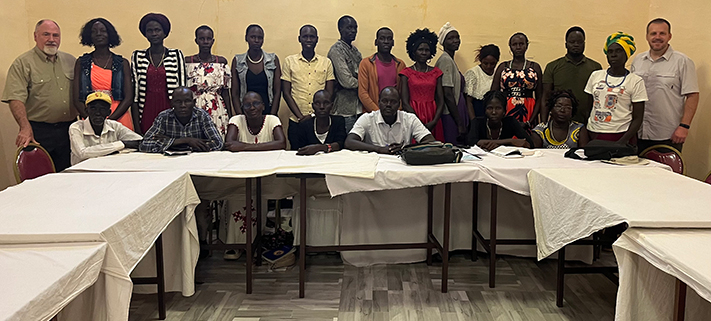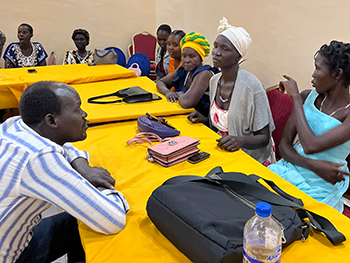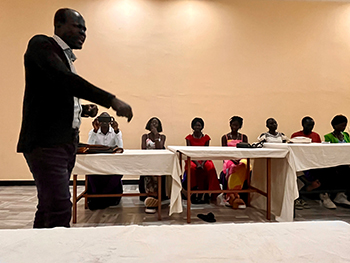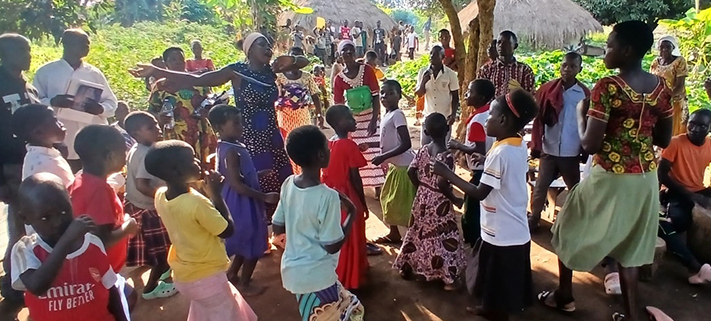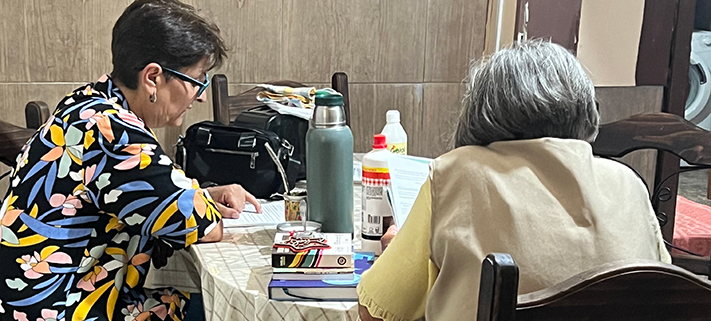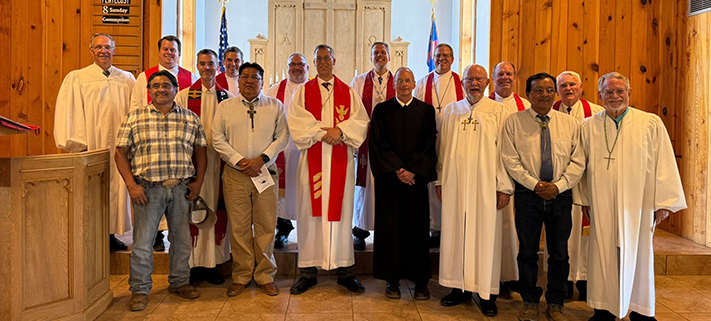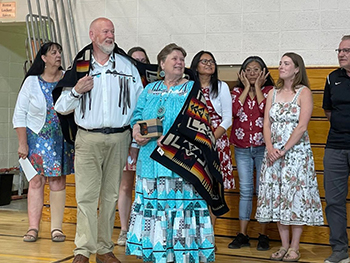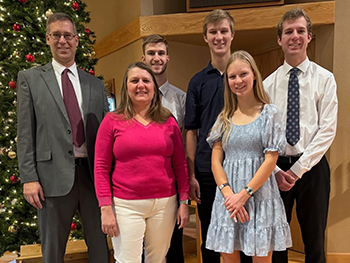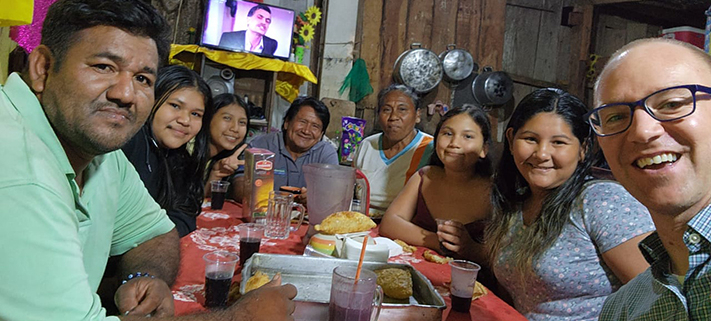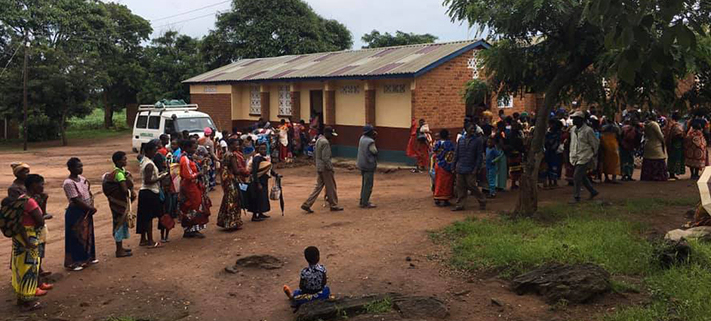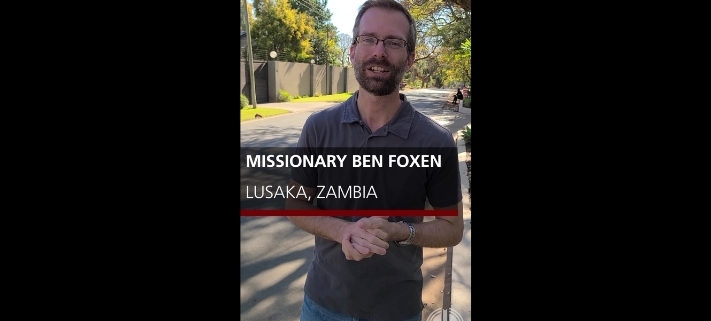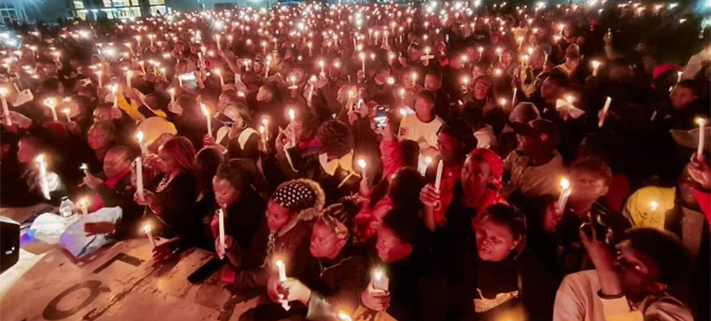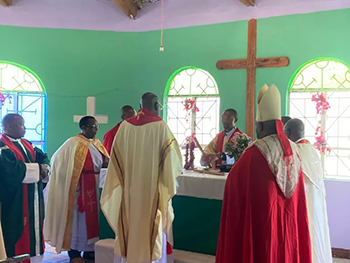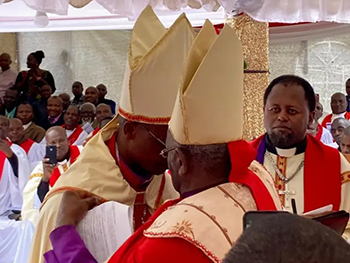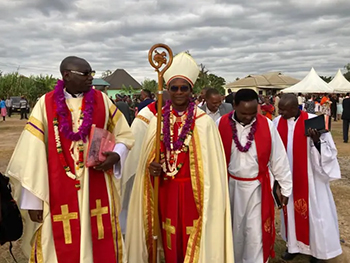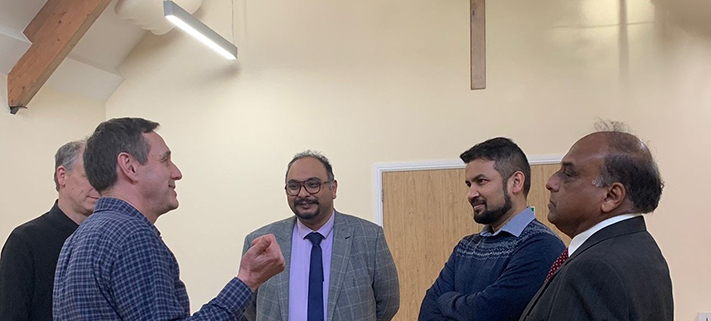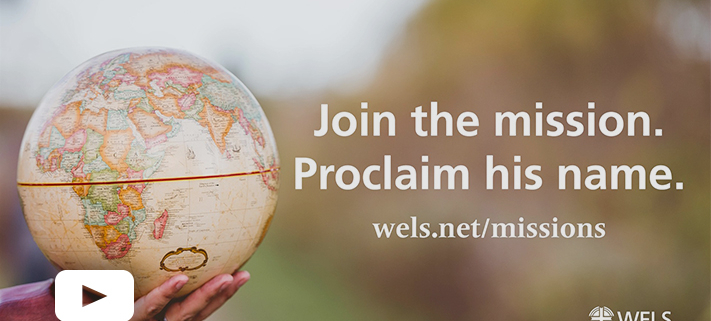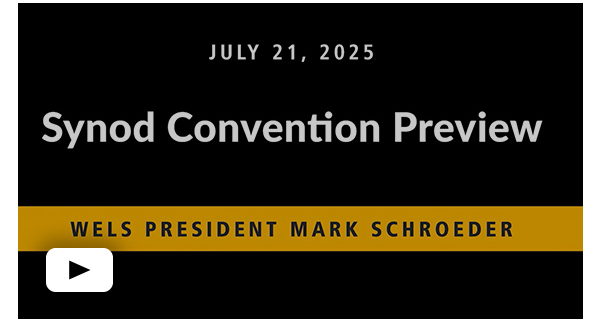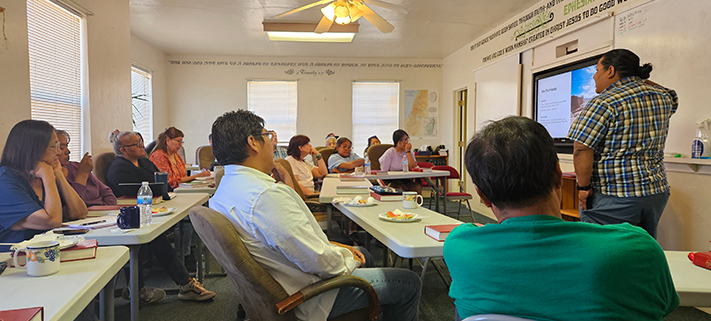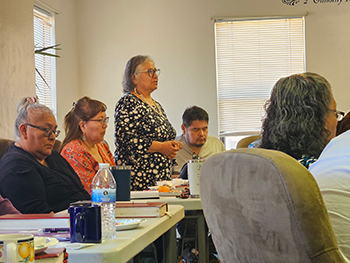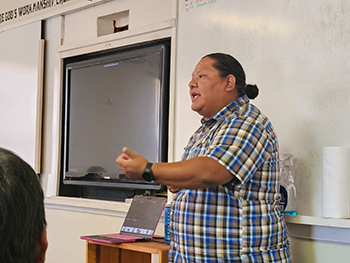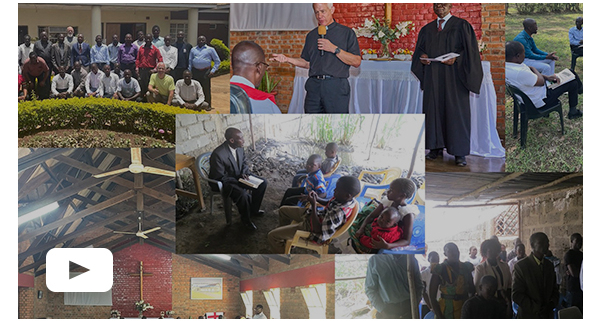In August 2010, my wife Caroline and I moved from Gloucester, England, to the east coast of the United States for a temporary work relocation. Having been active in our local Baptist church in England for more than 20 years, we naturally sought a Baptist church in the area. After attending services at Baptist and non-denominational churches nearby, we had a deep sense of unease and realized something fundamental was missing—but we weren’t sure what that might be. After listening to sermons from the local WELS church online, there was something different about them. We thought we’d give it a go.
The very first service we attended blew us away: the liturgy, the Christ-centered sermons, worship that put the majesty of God the Father and Jesus Christ’s sacrifice at its core, Law and Gospel, the knowledge that scripture is God’s Holy Word, using Scripture to interpret Scripture, justification by faith alone, the clear doctrine, the incredible deep teaching of the truth. . . wow! We realized we’d been missing so many things for so long that we weren’t even aware we were missing.
We completed Bible information class, and after spending some extra time challenging our Baptist understanding of the truth of Scripture on infant baptism and close communion, we became members of Christ Lutheran Church in Clarksville, Md., in early 2011.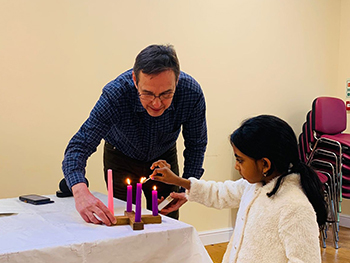
Returning to the U.K. in September 2015, we were filled with trepidation. We couldn’t go back to the Baptist church—but where would we find a WELS-affiliated, English-speaking church in the U.K.? Did one even exist?
Miraculously, we found that a WELS pastor commuted all the way from Ramstein, Germany, to hold a service on the first Sunday of each month at a place called Northwood, in the suburbs of northwest London. Despite being almost 100 miles away, we were so grateful to God for providing this congregation and a wonderful WELS pastor that the four-hour round trip once a month was no problem. We continued to pray that God would send a permanent WELS pastor to the U.K. so that we could have weekly services.
In 2022, WELS members at Northwood officially invited WELS World Missions to send trained pastors to help establish and serve congregations in the U.K.
In an astonishing answer to prayer, two missionary pastors were sent: Pastor Mike Hartman and Pastor Conifer Berg. By June 2023, weekly services were established in Aldgate, London—soon followed by a WELS family in Wolverhampton (near Birmingham, U.K.) generously opening their home to host weekly Sunday services. The location in Wolverhampton was led by retired Pastor Paul Hartman, who had graciously committed to spending six months in the U.K. with his wife Carol to help establish the congregation there, while the congregation in London grew under the leadership of Pastor Mike and Pastor Conifer.
As Wolverhampton is only just over an hour drive for us, my wife and I were able to support this fledgling congregation. We started attending weekly services there in August 2023. Our prayers had remarkably been answered! But this wasn’t sufficient for God—he had bigger plans!
Pastor Paul and Carol’s tourist visa expired in March 2024, so Pastor Conifer Berg stepped in to lead the Wolverhampton house church for one Sunday per month, and two other men and I stepped up as lay leaders to lead the other three Sundays each month. We were soon blessed by the hospitality of the local Anglican church at St. John’s Church, Essington, who kindly offered the use of their newly built church hall. Our first service there took place in July 2024.
In August 2024, I retired from my secular job and enrolled at the Pastoral Studies Institute (PSI) in October 2024, with the aim of achieving a B.Div. (Bachelor of Divinity) to become a full-time pastor and help bring true biblical teaching to the people of the U.K.
In September, Pastor Conifer and his family returned to the U.S., and within weeks, the congregation at Wolverhampton called me to be their pastor! What an honor! Praise God! Since October 2024, I have been leading services, writing sermons and mid-week Bible studies. And although I’ve a long way to go in my training, I can truly call the congregation at Wolverhampton my sheep. It still raises a lump in my throat when they call me “pastor.”
There have been so many miracles along the way that I’m sometimes in danger of taking them for granted. Having the opportunity to reflect and write this blog is a humbling experience—it shows God’s hand is in all that we’re doing, and he has an amazing plan for the U.K.
The Lutheran Reformation that swept through Europe in the 16th century bypassed U.K. Christians. But non-Christians in the U.K. are growing in hunger for the truth and the certainty of salvation that can only come from the true gospel. It is our heartfelt prayer that we can help to bring that to the people of the U.K., so that when they walk into our church, they have the same “wow” experience Caroline and I had back in 2010 when we walked into Christ Lutheran Church—and continue to have every time we hear God’s Word.
Written by Mr. Lawrence McCatty, Pastoral Studies Institute (PSI) student and leader at Holy Word in Wolverhampton.
Read more about Lawrence and Caroline McCatty in their Confessions of faith story from Forward in Christ magazine.
Learn about the ministry work of WELS Missions.
Support the ministry work of WELS Missions.
